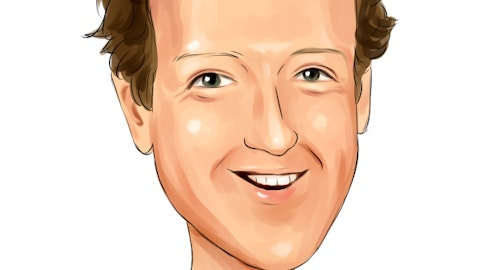
LinkedIn boosts its mobile presence
LinkedIn Corp (NYSE:LNKD), often called the “Facebook for Professionals,” has been laser-focused on creating a fully mobile ecosystem for its users. The company first drastically modified its mobile app in April, adding a personalized activity stream, clearer navigation and streamlined news feed advertisements. LinkedIn Corp (NYSE:LNKD)’s original app only allowed users to search for other people, but an update this month rectified that oversight, allowing users to search for companies, groups and jobs as well.
However, some of LinkedIn’s other features still exist as separate apps. For example, it acquired business card scanning app CardMunch two years ago, but the service remains a standalone app for iOS and Android, rather than a function of the official LinkedIn app. Meanwhile, it merged the Contacts section of its website into a standalone personal assistant app for iOS devices. Keeping these services as separate apps is an odd choice, considering how well they would integrate with LinkedIn Corp (NYSE:LNKD)’s primary app.
Joff Redfern, the head of mobile products at LinkedIn, once stated that it was “hard to get everything that LinkedIn does on to a single application on a small screen.” However, the company needs to beware of needlessly fragmenting its user base of 225 million professionals and 3 million company pages. In addition, 64% of its users are overseas, so LinkedIn would benefit more from releasing and updating a single app on a regular basis, rather than three separate ones that might not be simultaneously updated worldwide.
Over the past year, LinkedIn Corp (NYSE:LNKD) has undergone a rapid transformation from a network used primarily for job queries to a more social-oriented site. Its acquisition of news reader Pulse for $90 million made browsing the site a much more visual experience, and the addition of sponsored stories from influential leaders made the site more interesting for returning users.
So far, LinkedIn’s efforts have paid off. Last quarter, it reported year-on-year earnings and revenue growth of 353% and 72.3%, respectively. Although it still trades at 86 times forward earnings, the stock is still up more than 70% over the past twelve months.
Facebook focuses on the mobile games market
LinkedIn’s growth is a stark contrast to Facebook Inc (NASDAQ:FB)’s more tepid growth. Last quarter, Facebook Inc (NASDAQ:FB)’s earnings rose 6.8% as its revenue grew 37.8% year-on-year, despite its position as the world’s largest social network with 1.1 billion users. Since its disastrous IPO last May, many investors have wondered why Facebook, which only trades at 31 times forward earnings, just isn’t being taken seriously in comparison to LinkedIn.
The problem with Facebook Inc (NASDAQ:FB) is its user base. Whereas LinkedIn is regarded as the social network for professionals, Facebook will always be considered a network for casual users, who are more fickle and less likely to pay for premium features. LinkedIn Corp (NYSE:LNKD) is able to generate revenue from premium users alongside advertising. Facebook, on the other hand, must rely completely on advertising and micro-transactions to grow its top line.
TechCrunch recently reported that Facebook is now attempting to expand into a hot area of mobile growth – mobile games. Over the past year, companies such as Zynga Inc (NASDAQ:ZNGA), King and Electronic Arts have been bringing their Facebook games to mobile devices, where most users now play these games. Facebook doesn’t intend to create mobile games, but rather to act as a publisher for smaller developers. In exchange, Facebook would earn a cut of the in-game advertising revenue and micro-payments for virtual items.
Last quarter, micro-transactions and other fees accounted for $200 million of Facebook Inc (NASDAQ:FB)’s revenue, while mobile ad purchases from game developers generated another $373 million. Although those sales already account for 10.4% of Facebook’s quarterly revenue, it could make substantially more if it manages to replicate the success of Apple Inc. (NASDAQ:AAPL) and Google Inc (NASDAQ:GOOG)’s mobile app stores. Both Apple Inc. (NASDAQ:AAPL) and Google Inc (NASDAQ:GOOG) take a 30% cut on all digital transactions.
In addition, publishing mobile games directly would increase Facebook Inc (NASDAQ:FB)’s defensive moat against Asian mobile chat companies like Line and Kakao, which expanded out of their initial niche by creating timelines and integrated mobile games that synchronize to their phone contact lists, undermining Facebook’s importance on mobile platforms.




